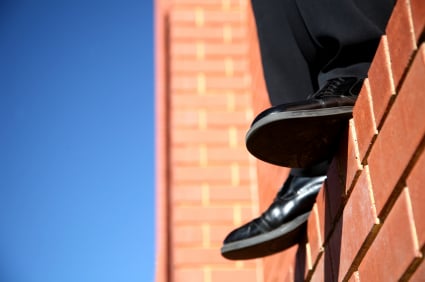Avoiding the drop this year could mean trouble for investors' favorite asset class.
Investors have pumped more than $1 trillion into fixed-income funds since the financial crash, but a resolution to the fiscal cliff this year could cause that asset class a lot of pain.
If Congress is able to come to a resolution on the fiscal cliff, which is obviously a big if, it would avert a recession in the first half of next year and remove a lot of the uncertainty that has been hanging over the markets.
“It'd be good for businesses, it'd be very good for equities, but it'd be bad for bonds,” Ken Volpert, head of the taxable-bond group at The Vanguard Group Inc., said today at the Bloomberg Portfolio Manager Mash-Up in New York.
The reason a solution would be bad for bonds is that if the economy starts humming along at a good pace, it's likely to lead to a rise in interest rates, which the Federal Reserve has been keeping artificially low.
Without the Fed's interference, Mr. Volpert said, interest rates on the 10-year Treasury note would be closer to 3.5%, double what it currently yields.
An interest rate rise of just 1 percentage point would cause a 4 to 5 basis-point loss to the Barclays Capital Aggregate Bond Index.
Still, there could be an upside to bond fund losses. Seeing actual losses in bond holdings is what some observers have predicted will finally lead to the “great rotation” from bonds to equities that investors have been avoiding even as the stock market has nearly recovered all its losses from 2008. Since that time, investors have pulled nearly $500 billion from stock mutual funds.
“So much money has gone into bonds and out of stocks, we're worried investors are not balanced with the right long-term asset mix they need,” Mr. Volpert said.
That's not a case to get rid of bonds entirely, of course.
“You're still going to need the diversification,” said Jeff Rosenberg, chief investment strategist of fixed income at BlackRock Inc.
During the biggest market declines of the last 20 years, bonds have been able to provide a hedge, Mr. Volpert said.
Even so, that hedge is going to come with a greater cost than in the past, thanks to extremely low expected returns of around 2% or zero with inflation, Mr. Rosenberg said.







